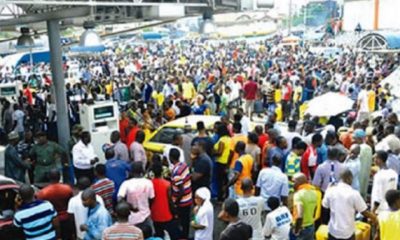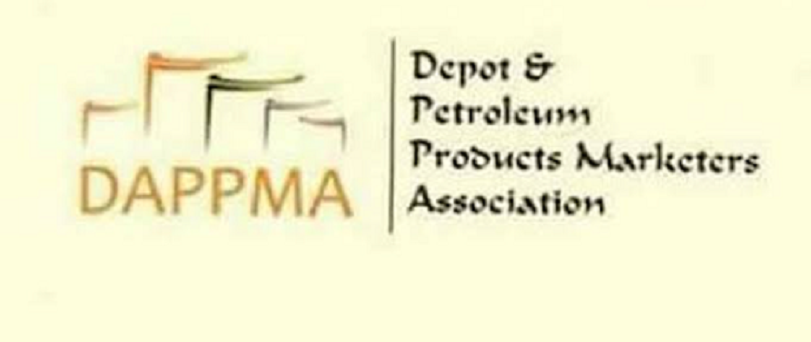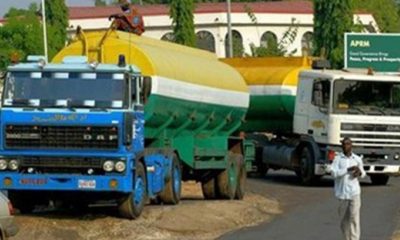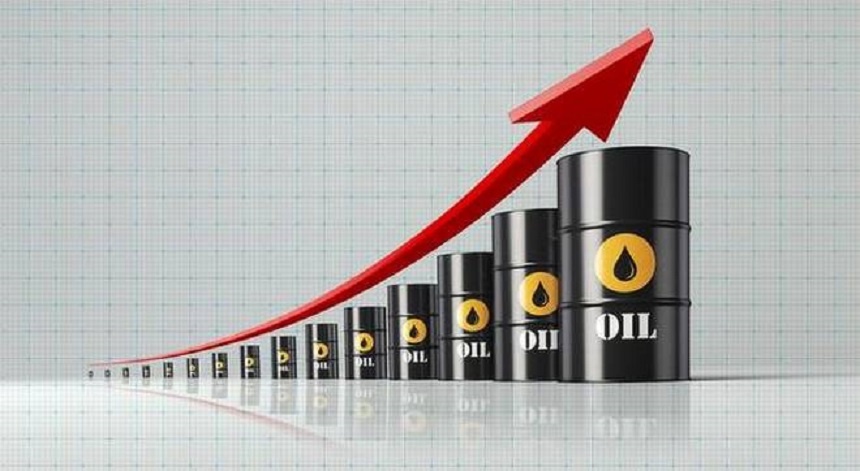Economy
Mass Sack Looms in Oil Industry over N720b Debt
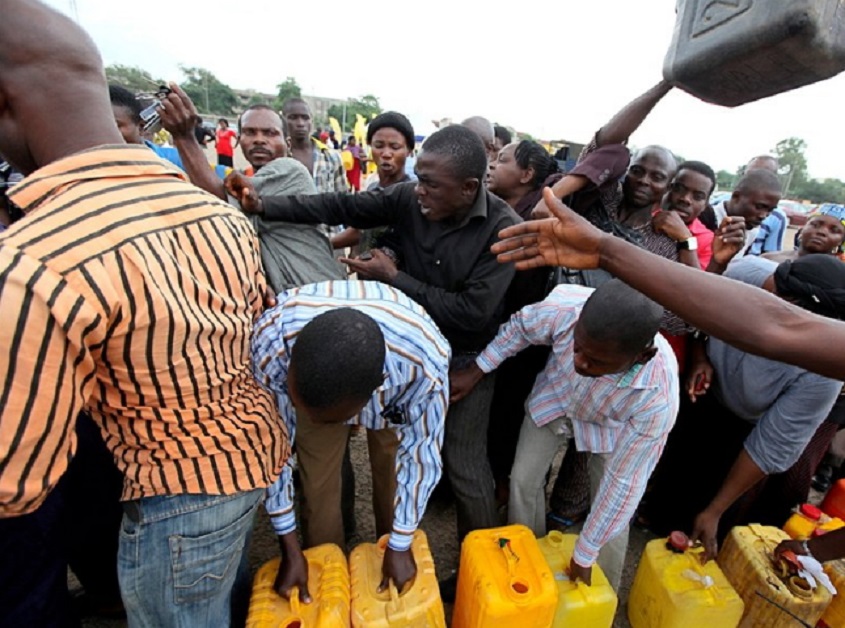
By Guardian
Except the Federal Government pays all petroleum subsidy arrears of over $2 billion (N720 billion) owed oil marketers, many employees in the downstream sector may soon be thrown into the labour market.
Already, the oil marketers have disclosed plans to embark on mass retrenchment of workers as government fails to pay the outstanding subsidy owed on the importation of petroleum products, accrued interest on loans from banks and exchange rate differential.
The government’s delay in the payment of the over N720 billion debt has made marketers to halt the importation of petrol, leaving the Nigerian National Petroleum Corporation (NNPC) to become the sole importer of the essential commodity. The marketers said as a result of the non-payment of interest and foreign exchange differentials, they had gradually become financially handicapped to continue operating profitably.
Both the Ministry of Finance and the Petroleum Products Pricing and Regulatory Agency (PPPRA) could not be reached for comments last night. Text messages sent to the mobile phones of their spokesmen — Lanre Oladele (finance ministry) and Salisu Saleh of the PPPRA— did not elicit any response as at press time, even as several calls put to their phones rang out. But presidency sources had confirmed to The Guardian that efforts were being made to settle all outstanding issues in the sub-sector.
The marketers, who operate under the aegis of Major Oil Marketers Association of Nigeria (MOMAN); Independent Petroleum Marketers Association of Nigeria (IPMAN); Depot and Petroleum Products Marketers Association (DAPPMA); and Independent Petroleum Products Importers (IPPIs), added that government’s delay in settling all the debts was threatening massive investment in the downstream sector.
A statement by the marketers after their joint meeting in Lagos yesterday which was signed by their legal adviser, Patrick Etim Esq, revealed that many petrol sellers and oil companies are owing their workers over eight months’ salaries due to the inability of the Federal Government to pay the debt.
The marketers appealed for an urgent intervention of government by the authorisation to pay outstanding interest and foreign exchange differentials owed them to date to save their businesses from total collapse. They alleged that government violated the agreement reached with them on payment schedule.
They claimed that the commercial banks that lent money to them for the importation of petrol were still in despair following the weight of the indebtedness of the oil sellers, even as their operations nationwide were fast grinding to a halt. They said the hope that the outstanding subsidy would be paid following the intervention of the Vice President, Yemi Osinbajo, appeared to have been shattered as the payment promised to be effected in July 2017 was yet to materialise.
The statement reads in part: “This is devastating to marketers as we are being dragged daily by banks on debts owed and under threat of putting our tank farms under receivership.
“The condition of the contract is that the government shall pay the difference between the landing cost and the selling price of petrol (as fixed by government) provided that the landing cost is higher than the selling price.
“The government approved the landing cost which fluctuated as it depended mainly on the international price of petrol and exchange rate of naira/dollar. A key term of the government’s contract with marketers is that the under-recovery payments shall be paid to marketers within 45 days of submission of documents evidencing discharge of petrol cargo and trucking out from storage.”
According to the marketers, it was also agreed that after 45 days, the government should pay the interest charges on the loans taken to finance the importation of petrol.
Explaining their ordeal, the marketers said they opened letters of credit at the approximate exchange rate of N197/$1.00 while petrol cargoes were supplied and sold at the selling prices approved by government and the repayment was calculated using the above exchange rate.
The marketers stated that it was only in the first quarter of 2017 that the banks were able to liquidate the letters of credit from 2014/ 2015 at N360/$ as against the N176-195/$ at the time the LC’s were opened because of lack of foreign exchange from the government, leaving their accounts with the huge differential.
“The recent further devaluation of the naira from N195 to N305, and later to over N365 to US$1, while the Federal Government agencies based their reimbursement calculation on N197 to $1, left petroleum marketers within our association with additional debt burden in excess of N600 billion. This is in addition to the over N250 billion arrears owed.
“The downstream sector as a whole, is now saddled with a debt burden of over N850 billion which keeps rising because the banks are still charging interests until the total debt is fully liquidated,’’ the marketers claimed.
On the implication, they said the operations of the marketers had been halted with a backlog of staff salaries remaining unpaid for about eight months now.
But the other stakeholders called for dialogue, emphasising the need for the government to provide incentives and create an enabling environment for the establishment of private refineries.
The Chairman, Lagos Chamber of Commerce and Industry (LCCI) Petroleum Downstream Group, Ken Abazie, described the planned retrenchment by oil marketers as a normal business decision in a challenging environment.
He said that the oil marketers were in business to make profit and therefore may be forced to retrench if there were no returns on investment.
According to Abazie, “if you are no more making money, I wonder why you should still be keeping employees in the company. The current fixed price of N145 a litre for petrol is not profitable for marketers. If we are not importing, automatically, we are not in business and if we are not in business, there is no need to keep the workforce. This is the current challenge for every investor in the downstream sector.”
He said that businesses were crumbling, as NNPC became the sole importer of petroleum products in the country.
To Abazie, the funds the government is using for the importation of petroleum products should be directed to capital projects.
The Executive Secretary of the association, Obafemi Olawore, urged the Federal Government to pay the outstanding debts of $2 billion owed on the importation of petrol products and the accrued interests on bank loans.
According to him, the delay in the repayment of the loan debts owed the banks by marketers has led to the retrenchment in the banking and the oil and gas sectors.
“The debts have impacted grossly on marketers. Only a very few are presently importing insignificant quantity of petroleum products into the country,’’ he said.
Olawore said that the plea was to avert the scarcity of petroleum products in the country.
According to him, the inability of the marketers to import fuel has impacted negatively on loading activities at the Apapa and Dockyard private depots in Lagos.
Head, Programmes and Membership, Institute of Directors’ Centre for Corporate Governance, Nerus Ekezie, said that government should verify and pay all the subsidy arrears.
He said that the impact the retrenchment would have on the economy would be too much for the country to handle, especially during this period of economic recession.
Ekezie pleaded with the oil marketers to exercise patience and engage in a dialogue with the Federal Government in respect to the settlement of the subsidy arrears.
He stressed the need for the Federal Government to find a lasting solution to the issues of fuel subsidy arrears.
He said that government should encourage the establishment of private refiners through the provision of incentives to bring a lasting solution to the issue of petroleum imports. “Government should pay what it is owes the oil marketers and fully deregulate the downstream sector.,” he added.
Economy
Adedeji Urges Nigeria to Add More Products to Export Basket

By Adedapo Adesanya
The chairman of the Nigeria Revenue Service (NRS), Mr Zacch Adedeji, has urged the country to broaden its export basket beyond raw materials by embracing ideas, innovation and the production of more value-added and complex products
Mr Adedeji said this during the maiden distinguished personality lecture of the Faculty of Administration, Obafemi Awolowo University (OAU), Ile-Ife, Osun State, on Thursday.
The NRS chairman, in the lecture entitled From Potential to Prosperity: Export-led Economy, revealed that Nigeria experienced stagnation in its export drive over three decades, from 1998 to 2023, and added only six new products to its export basket during that period.
He stressed the need to rethink growth through the lens of complexity by not just producing more of the same stuff, lamenting that Nigeria possesses a high-tech oil sector and a low-productivity informal sector, as well as lacking “the vibrant, labour-absorbing industrial base that serves as a bridge to higher complexity,” he said in a statement by his special adviser on Media, Dare Adekanmbi.
Mr Adedeji urged Nigeria to learn from the world by comparative studies of success and failure, such as Vietnam, Bangladesh, Indonesia, South Africa, and Brazil.
“We are not just looking at numbers in a vacuum; we are looking at the strategic choices made by nations like Vietnam, Indonesia, Bangladesh, Brazil, and South Africa over the same twenty-five-year period. While there are many ways to underperform, the path to success is remarkably consistent: it is defined by a clear strategy to build economic complexity.
“When we put these stories together, the divergence is clear. Vietnam used global trade to build a resilient, complex economy, while the others remained dependent on natural resources or a single low-tech niche.
“There are three big lessons here for us in Nigeria as we think about our roadmap. First, avoiding the resource curse is necessary, but it is not enough. You need a proactive strategy to build productive capabilities,” he stated, adding that for Nigeria, which is at an even earlier stage of development and even less diversified than these nations, the warning is stark.
“Relying solely on our natural endowments isn’t just a path to stagnation; it’s a path to regression. The global economy increasingly rewards knowledge and complexity, not just what you can dig out of the ground. If we want to move from potential to prosperity, we must stop being just a source of raw materials and start being a source of ideas, innovation, and complex products,” the taxman stated.
He added that President Bola Tinubu has already begun the difficult work of rebuilding the economy, building collective knowledge to innovate, produce, and build a resilient economy.
Economy
Nigeria Inaugurates Strategy to Tap into $7.7trn Global Halal Market

By Adedapo Adesanya
President Bola Tinubu on Thursday inaugurated Nigeria’s National Halal Economy Strategy to tap into the $7.7 trillion global halal market and diversify its economy.
President Tinubu, while inaugurating the strategy, called for disciplined, inclusive, and measurable action for the strategy to deliver jobs and shared prosperity across the country.
Represented by Vice-President Kashim Shettima, he described the unveiling of the strategy as a signal of Nigeria’s readiness to join the world in grabbing a huge chunk of the global halal economy already embraced by leading nations.
“As well as to clearly define the nation’s direction within the market, is expected to add an estimated $1.5 billion to the nation’s Gross Domestic Product (GDP) by 2027. It is with this sense of responsibility that I formally unveil the Nigeria National Halal Economy Strategy.
“This document is a declaration of our promise to meet global standards with Nigerian capacity and to convert opportunity into lasting economic value. What follows must be action that is disciplined, inclusive, and measurable, so that this Strategy delivers jobs, exports, and shared prosperity across our nation.
“It is going to be chaired by the supremely competent Minister of Industry, Trade and Investment.”
The president explained that the halal-compliant food exports, developing pharmaceutical and cosmetic value chains would position Nigeria as a halal-friendly tourism destination, and mobilising ethical finance at scale,” by 2030.
“The cumulative efforts “are projected to unlock over twelve billion dollars in economic value.
“While strengthening food security, deepening industrial capacity, and creating opportunities for small-and-medium-sized enterprises across our states,” he added.
Allaying concerns by those linking the halal with religious affiliation, President Tinubu pointed out that the global halal economy had since outgrown parochial interpretations.
“It is no longer defined solely by faith, but by trust, through systems that emphasise quality, traceability, safety, and ethical production. These principles resonate far beyond any single community.
“They speak to consumers, investors, and trading partners who increasingly demand certainty in how goods are produced, financed, and delivered. It is within this broader understanding that Nigeria now positions itself.”
Tinubu said many advanced Western economies had since “recognised the commercial and ethical appeal of the halal economy and have integrated it into their export and quality-assurance systems.”
President Tinubu listed developed countries, including the United Kingdom, France, Germany, the Netherlands, the United States, Canada, Australia, and New Zealand.
“They are currently among the “leading producers, certifiers, and exporters of halal food, pharmaceuticals, cosmetics, and financial products.”
He stated that what these developed nations had experienced is a confirmation of a simple truth, that “the halal economy is a global market framework rooted in standards, safety, and consumer trust, not geography or belief.”
The president explained that the Nigeria national halal economy strategy is the result of careful study and sober reflection.
He added that it was inspired by the commitment of his administration of “to diversify exports, attract foreign direct investment, and create sustainable jobs across the federation.
“It is also the product of deliberate partnership, developed with the Halal Products Development Company, a subsidiary of the Saudi Public Investment Fund.
“And Dar Al Halal Group Nigeria, with technical backing from institutions such as the Islamic Development Bank and the Arab Bank for Economic Development in Africa.”
The Minister of Industry, Trade and Investment, Mrs Jumoke Oduwole, said the inauguration of the strategy was a public-private collaboration that has involved extensive interaction with stakeholders.
Mrs Oduwole, who is the Chairperson, National Halal Strategy Committee, said that the private sector led the charge in ensuring that it is a whole-of-government and whole-of-country intervention.
The minister stressed that what the Halal strategy had done for Nigeria “is to position us among countries that export Halal-certified goods across the world.
The minister said, “We are going to leverage the African Continental Free Trade Area (AfCFTA) to ensure that we export our Halal-friendly goods to the rest of Africa and beyond to any willing markets; participation is voluntary. “
She assured that as the Chairperson, her ministry would deliver on the objectives of the strategy for the prosperity of the nation.
The Chairman of Dar Al-Halal Group Nigeria L.td, Mr Muhammadu Dikko-Ladan, explained that the Halal Product Development Company collaborated with the group in developing the strategy.
“In addition to the strategy, an export programme is underway involving the Ministry of Trade and Investment, through which Nigerian companies can be onboarded into the Saudi Arabian market and beyond.£
Mr Dikko-Ladan described the Strategy as a landmark opportunity for Nigeria, as it creates market access and attracts foreign direct investment.
Economy
UK, Canada, Others Back New Cashew Nut Processing Plant Construction in Ogun

By Adedapo Adesanya
GuarantCo, part of the Private Infrastructure Development Group (PIDG), has provided a 100 per cent guarantee to support a $75 million debt facility for Robust International Pte Ltd (Robust) to construct a new cashew nut processing plant in Ogun State, Nigeria.
GuarantCo, under the PIDG is funded by the United Kingdom, the Netherlands, Switzerland, Australia, Sweden and Canada, mobilises private sector local currency investment for infrastructure projects and supports the development of financial markets in lower-income countries across Africa and Asia.
Nigeria is one of Africa’s largest cashew producers of 300,000 tonnes of raw cashew nuts annually, yet currently less than 10 per cent are processed domestically. Most raw nuts are exported unprocessed to Asian and other countries, forfeiting up to 80 per cent of their potential export value and adding exposure to foreign exchange fluctuations.
According to GuarantCo, this additional plant will more than double Robust’s existing cashew processing capacity from 100 metric tonnes per day to 220 metric tonnes per day to help reduce this structural gap.
The new plant will be of extensive benefit to the local economy, with the procurement of cashew nuts from around 10,000 primarily low-income smallholder farmers.
There is an expected increase in export revenue of up to $335 million and procurement from the local supply chain over the lifetime of the guarantee.
Furthermore, the new plant will incorporate functionality to convert waste by-products into value-added biomass and biofuel inputs to enhance the environmental impact of the transaction.
It is anticipated that up to 900 jobs will be created, with as many as 78 per cent to be held by women. Robust also has a target to gradually increase the share of procurement from women farmers, from 15 per cent to 25 per cent by 2028, as it reaches new regions in Nigeria and extends its ongoing gender-responsive outreach programme for farmers.
Terms of the deal showed that the debt facility was provided by a Symbiotics-arranged bond platform, which in turn issued notes with the benefit of the GuarantCo guarantee. These notes have been subscribed to in full by M&G Investments. The transaction was executed in record time due to the successful replication of two recent transactions in Côte d’Ivoire and Senegal, again in collaboration with M&G Investments and Symbiotics.
Speaking on the development, the British Deputy High Commissioner, Mr Jonny Baxter, said: “The UK is proud to support innovative financing that mobilises private capital into Nigeria’s productive economy through UK-backed institutions such as PIDG. By backing investment into local processing and value addition, this transaction supports jobs, exports and more resilient agricultural supply chains. Complementing this, through the UK-Nigeria Enhanced Trade and Investment Partnerships and the Developing Countries Trading Scheme, the UK is supporting Nigerian businesses to scale exports to the UK and beyond, demonstrating how UK-backed partnerships help firms grow and compete internationally.”
Mr Dave Chalila, Head of Africa and Middle East Investments at GuarantCo, said: “This transaction marks GuarantCo’s third collaboration with M&G Investments and Symbiotics, emphasising our efforts to bring replicability to everything we do so that we accelerate socio-economic development where it matters most. The transaction is consistent with PIDG’s mandate to mobilise private capital into high-impact, underfinanced sectors. In this case, crowding in institutional investors in the African agri-processing value chain.
“As with the two recent similarly structured transactions, funding is channelled through the Symbiotics institutional investor platform, with the notes externally rated by Fitch and benefiting from a rating uplift due to the GuarantCo guarantee.”
Adding his input, Mr Vishanth Narayan, Group Executive Director at Robust International Group, said: “As a global leader in agricultural commodities, Robust International remains steadfast in its commitment to building resilient, ethical and value-adding supply chains across origin and destination markets. This transaction represents an important step in advancing our long-term strategy of strengthening processing capabilities, deepening engagement with farmers and enhancing local value addition in the regions where we operate. Through sustained investment, disciplined execution and decades of operating experience, we continue to focus on delivering reliable, high-quality products while fostering inclusive and sustainable economic growth.”
For Ms María Redondo, director at M&G Investments, “The guarantee gives us the assurance to invest in hard currency, emerging market debt, while supporting Robust’s new cashew processing plant in Nigeria. It’s a clear example of how smart credit enhancement can unlock institutional capital for high-impact development and manage currency and credit risks effectively. This is another strong step in channelling institutional capital into meaningful, on‑the‑ground growth.”
Also, Ms Valeria Berzunza, Structuring & Arranging at Symbiotics, said: “We are pleased to continue our collaboration with M&G Investments, GuarantCo, and now with Robust through a transaction with a strong social and gender focus, demonstrating that well-structured products can boost commercially attractive, viable, and impactful investments.”
-

 Feature/OPED6 years ago
Feature/OPED6 years agoDavos was Different this year
-
Travel/Tourism9 years ago
Lagos Seals Western Lodge Hotel In Ikorodu
-

 Showbiz3 years ago
Showbiz3 years agoEstranged Lover Releases Videos of Empress Njamah Bathing
-

 Banking8 years ago
Banking8 years agoSort Codes of GTBank Branches in Nigeria
-

 Economy3 years ago
Economy3 years agoSubsidy Removal: CNG at N130 Per Litre Cheaper Than Petrol—IPMAN
-

 Banking3 years ago
Banking3 years agoSort Codes of UBA Branches in Nigeria
-

 Banking3 years ago
Banking3 years agoFirst Bank Announces Planned Downtime
-

 Sports3 years ago
Sports3 years agoHighest Paid Nigerian Footballer – How Much Do Nigerian Footballers Earn


